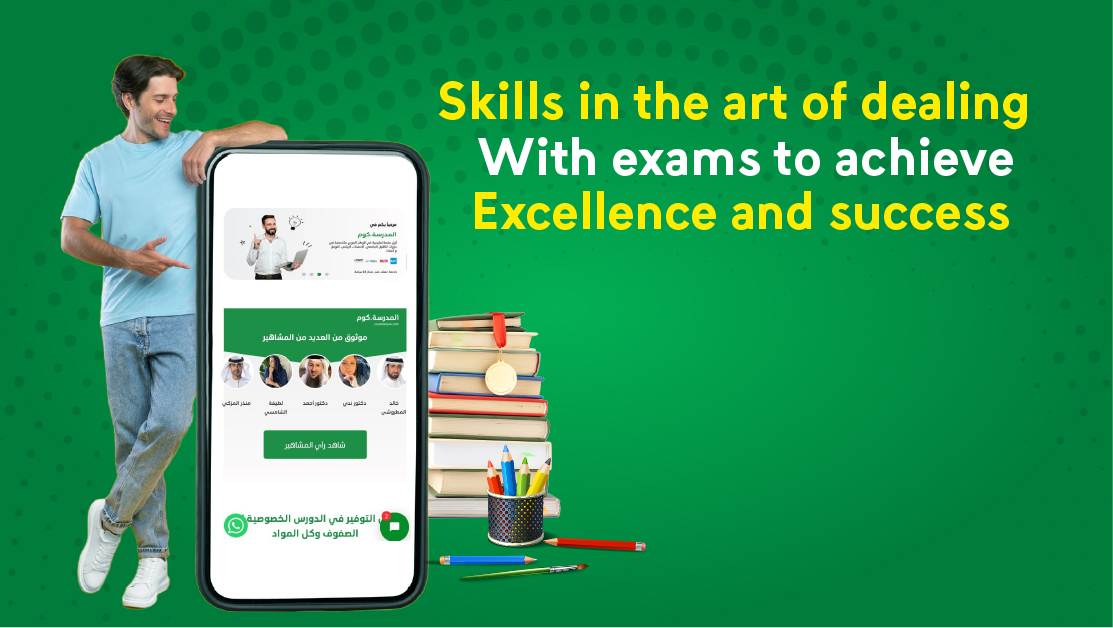
Are you prepared to succeed in your exams?
Do you wish to have more self-assurance when taking your exams?
If so, you should read this article! We’ll go over some of the best test-taking advice and strategies and learning the art of dealing with exams , as well as how to apply them to improve your academic performance and master the art of handling exams.
End-of-year period
To attain greatness in academic achievement as the conclusion of the year draws near, it is critical to begin studying for the tests.
It is essential to set some time to organize the tests and go through the course material.
Examining the course schedule to choose the things to study is one way to accomplish this.
As a result, they can create a study plan and narrow their attention to the most crucial subjects.
Additionally, pupils can use old exams as practice and confidence boosters and it’s critical to have effective time management abilities.
Students can make sure they have adequate time to study for tests and properly review material by making time management plans in advance.
Utilizing the pre-examination period effectively
The time leading up to exams is crucial for students to study and the art of dealing with exams , perfect their exam-taking techniques so they can ace their exams.
Students should concentrate on learning the information, improving their test-taking skills, and formulating an exam plan during this time.
The following are some of the most crucial abilities that students should hone before exams:
- Their effective study skills
Prioritizing their studies and concentrating on the key exam themes should be possible for students.
Additionally, they must be able to divide complicated subjects into smaller, easier-to-understand chunks.
Students should also design a study schedule that suits them best and allows them adequate downtime.
- Making connections between previously studied material and the current material they are studying is another crucial skill.
By doing so, they are better able to recall important ideas and comprehend their training.
In order to work swiftly and accurately during tests, students must also practise for timed exams.
- And finally, it’s critical for students to maintain their organization in the run-up to exams.
They must monitor their development and make sure they are adequately prepared for their tests.
Students must also stay current on any modifications to the exam’s syllabus or format and modify their study plans accordingly.
Exam types and how to approach them
Exams are one of the most crucial tools for gauging our achievement in school and at work.
One of the most crucial abilities in the art of test coping is developing a strong awareness of the various exam kinds and the various coping strategies for them, the most prevalent test is:
- Multiple options questions
The purpose of this kind of test is to gauge the student’s knowledge and comprehension of the subject.
It’s crucial to read each response in detail in order to provide accurate answers to inquiries of this nature.
It is also beneficial to remove replies that are patently erroneous.
- The essay exam is a different kind of test
For this kind of test, students must submit an essay to show that they have grasped the topic.
It is crucial to reread the information, make an outline of the key ideas, and practice writing in the format necessary when getting ready for an essay exam.
- Additionally, open book exams are frequently used.
Instead of only requiring memorization, this kind of test evaluates the student’s ability to locate and analyze pertinent information.
It’s crucial to thoroughly go over the content and practice finding specific information fast when getting ready for an open book exam.
Students can better prepare for their tests and increase their chances of success by learning the various exam formats and strategies for passing them.
Techniques for handling multiple-choice questions and the art of dealing with exams
A common sort of exam question is the multiple-choice question (MCQ), they instruct the pupils to choose the right response from a list of potential responses.
Students must comprehend the subject matter and have the following strategies for answering MCQs in order to do well:
- First, it’s crucial to carefully and properly read the entire question
Students should take their time and carefully read the instructions and statements, they should also read the possible answers and search for any keywords that might point to the right selection.
- Second, it’s critical to eliminate inaccurate responses
This can assist in reducing the options to the right response, if a student is unsure of the response, he or she should consider other options and rule out any that are obviously incorrect and learn the techniques of the the art of dealing with exams.
- Third, it’s critical to be aware of typical scams
MCQs may have questions with what appears to be more than one correct response or words or phrases that seem to point to a wrong response.
Students can recognise and avoid these traps by paying close attention to the statements used in the answer options.
- Lastly, it is crucial to set aside the time
Should go over and verify the responses Even if the student has already selected an answer, it is crucial to confirm that it is the right one.
Making sure the learner chooses the right response can be facilitated by taking the time to evaluate thoroughly.
How to spend the night before an exam at its finest
The night before the exam is a crucial step in the process of achieving excellence and the art of dealing with exams, it’s important to properly prepare for it, and among the skills in the art of dealing with exams are some of the most crucial advice:
- Get some rest and a decent night’s sleep.
- Additionally, it’s critical to give the subject one final review so that the learner can retain it thoroughly.
- It’s also a good idea to make sure that any notes you took throughout the study period are complete by going over them.
- Last but not least, it’s critical to make sure that everything, including any necessary resources, is prepared for the exam the following day and learn the art of dealing with exams.
The student is more likely to be prepared and confident for the exam the following day if they take the time to thoroughly prepare the night before.
On the day of the exam, the Muslim student’s actions
For a Muslim student to succeed, it is crucial that he behave appropriately on the day of the exam and the art of dealing with exams possess the necessary exam-handling techniques.
For the optimum performance, a Muslim student must maintain his composure and concentration.
They must keep in mind that their faith and trust in Allah must come first in whatever they do.
Additionally, students should make sure they have all the required materials, including notes and textbooks, and that they are adequately prepared for the exam and learn the art of dealing with exams .
Students should also develop a patient, determined attitude and work to maintain a good outlook throughout the entirety of the testing process.
Finally, it’s critical for them to keep in mind that learning and experience, rather than perfection, are their ultimate goals.
The Muslim student’s actions in front of the test committee
The Muslim student’s conduct in the examination committee must be based on decency, respect, and concentration.
It’s critical to keep in mind that the exam is a knowledge test, not a race.
In order to ensure that testing is carried out in a fair and honest manner, it is crucial to respect panel members, respond to inquiries with assurance and coherence, maintain composure, and take all required safeguards.
Muslim students should also make an effort to keep a positive attitude throughout the assessment period and take their time while responding to any questions that come up and learn the art of dealing with exams.
This demonstrates to the committee that the student is dedicated to succeeding in the task at hand.
You can learn to do well on tests and other academic assignments by developing exam-handling skills and the necessary knowledge with the art of dealing with exams.















